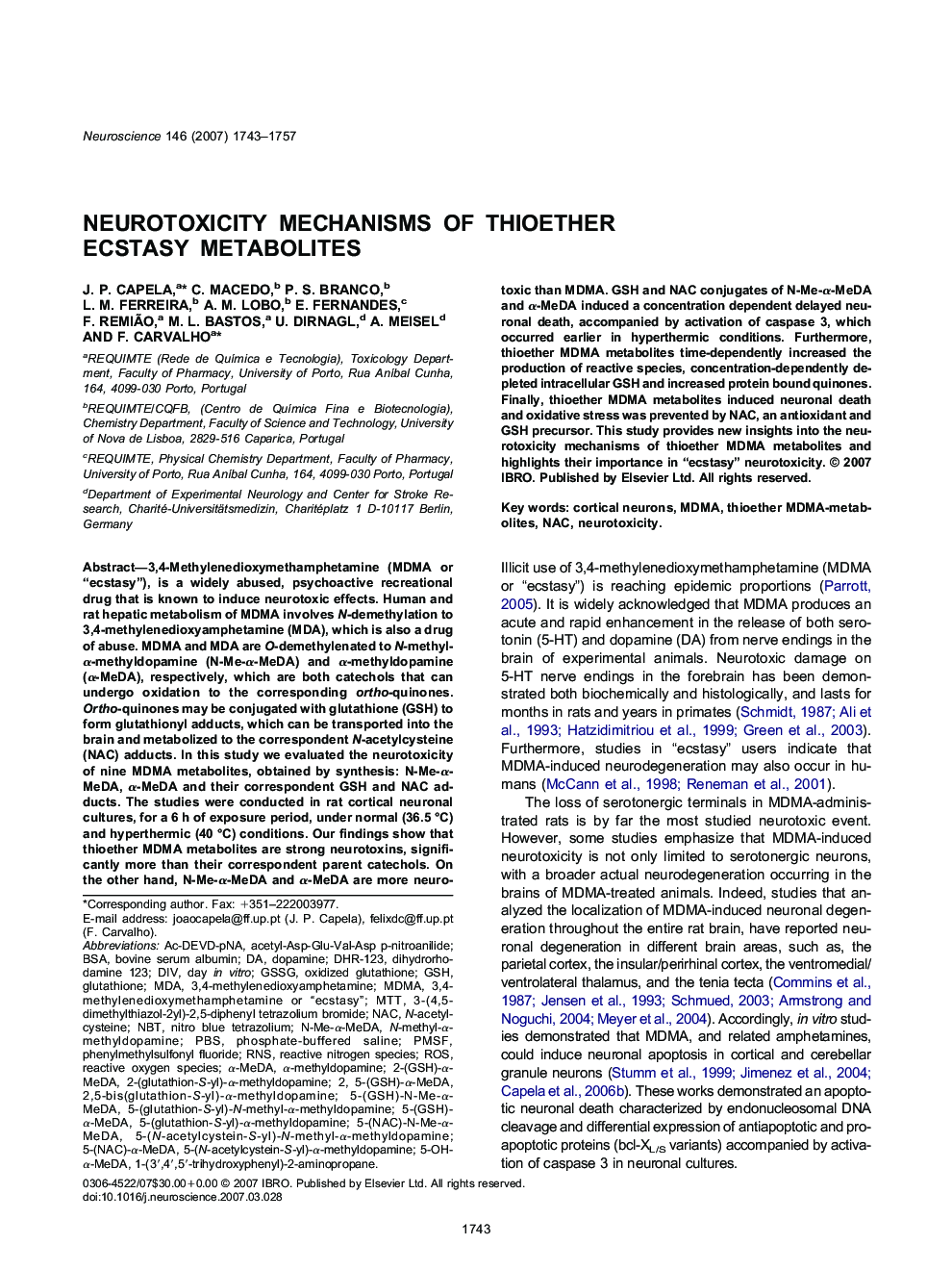| Article ID | Journal | Published Year | Pages | File Type |
|---|---|---|---|---|
| 4341860 | Neuroscience | 2007 | 15 Pages |
3,4-Methylenedioxymethamphetamine (MDMA or “ecstasy”), is a widely abused, psychoactive recreational drug that is known to induce neurotoxic effects. Human and rat hepatic metabolism of MDMA involves N-demethylation to 3,4-methylenedioxyamphetamine (MDA), which is also a drug of abuse. MDMA and MDA are O-demethylenated to N-methyl-α-methyldopamine (N-Me-α-MeDA) and α-methyldopamine (α-MeDA), respectively, which are both catechols that can undergo oxidation to the corresponding ortho-quinones. Ortho-quinones may be conjugated with glutathione (GSH) to form glutathionyl adducts, which can be transported into the brain and metabolized to the correspondent N-acetylcysteine (NAC) adducts. In this study we evaluated the neurotoxicity of nine MDMA metabolites, obtained by synthesis: N-Me-α-MeDA, α-MeDA and their correspondent GSH and NAC adducts. The studies were conducted in rat cortical neuronal cultures, for a 6 h of exposure period, under normal (36.5 °C) and hyperthermic (40 °C) conditions. Our findings show that thioether MDMA metabolites are strong neurotoxins, significantly more than their correspondent parent catechols. On the other hand, N-Me-α-MeDA and α-MeDA are more neurotoxic than MDMA. GSH and NAC conjugates of N-Me-α-MeDA and α-MeDA induced a concentration dependent delayed neuronal death, accompanied by activation of caspase 3, which occurred earlier in hyperthermic conditions. Furthermore, thioether MDMA metabolites time-dependently increased the production of reactive species, concentration-dependently depleted intracellular GSH and increased protein bound quinones. Finally, thioether MDMA metabolites induced neuronal death and oxidative stress was prevented by NAC, an antioxidant and GSH precursor. This study provides new insights into the neurotoxicity mechanisms of thioether MDMA metabolites and highlights their importance in “ecstasy” neurotoxicity.
